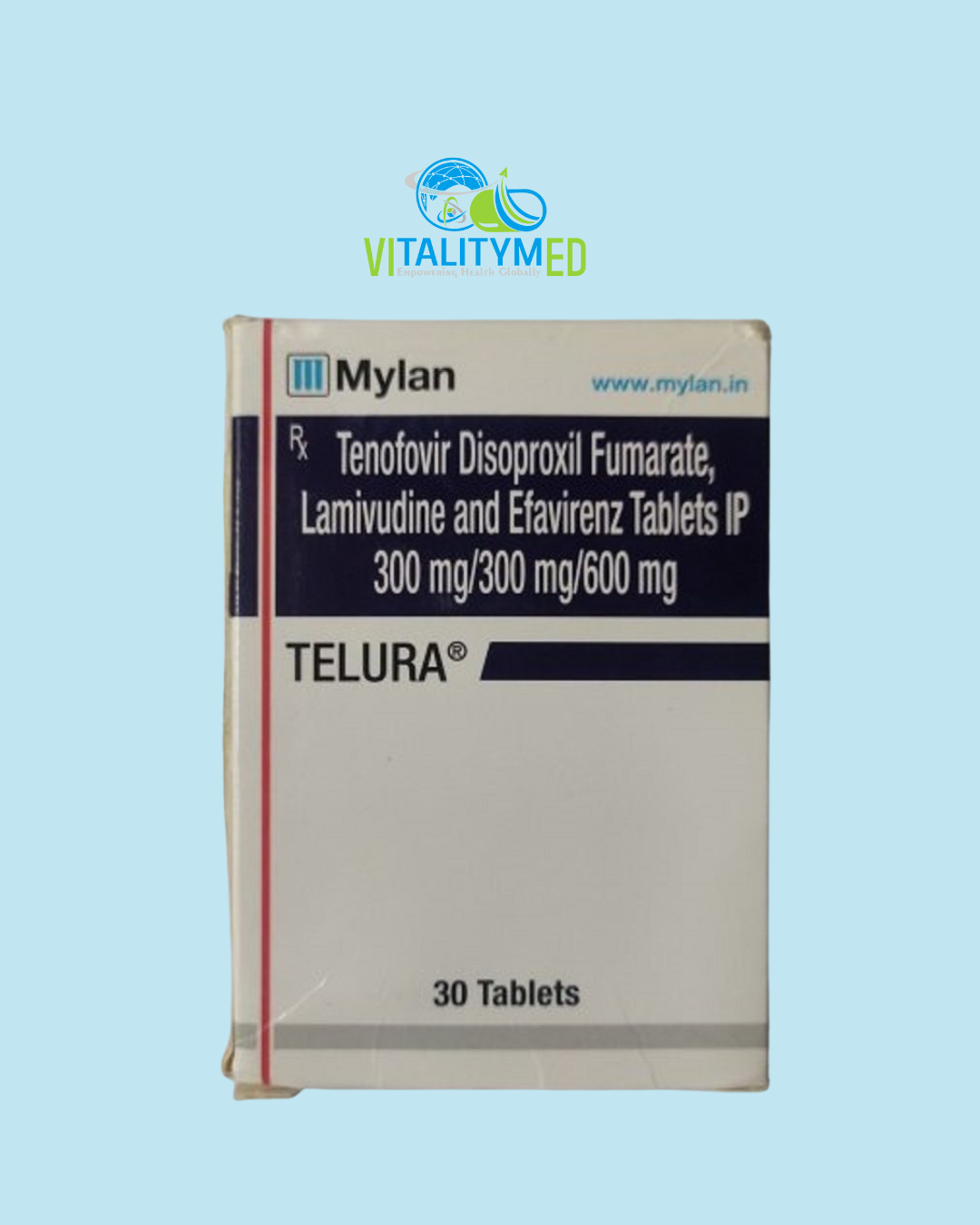Telura is a fixed-dose combination tablet used in the treatment of Human Immunodeficiency Virus type 1 (HIV-1) infection. It combines three antiretroviral medications: tenofovir disoproxil fumarate, lamivudine, and efavirenz. This single-pill regimen is designed to simplify HIV treatment by reducing the number of pills a patient needs to take each day, making it easier to stay on track with therapy and maintain viral suppression.
Mechanism of Action:
Each component of Telura plays a vital role in stopping the HIV virus from multiplying:
-
Tenofovir disoproxil fumarate is a nucleotide reverse transcriptase inhibitor. Once inside the body, it gets converted into its active form, which blocks the reverse transcriptase enzyme, an essential enzyme the virus uses to replicate.
-
Lamivudine is a nucleoside reverse transcriptase inhibitor. It works similarly to tenofovir by interfering with the reverse transcription process, causing the premature termination of viral DNA chains.
-
Efavirenz is a non-nucleoside reverse transcriptase inhibitor. It binds directly to the reverse transcriptase enzyme and disables it, preventing the virus from making new copies of itself.
Uses:
Telura is used for:-
Treating HIV-1 infection in adults and adolescents weighing at least thirty-five kilograms.
-
It is often recommended for individuals starting HIV treatment or those who are stable on another regimen and wish to switch to a single-tablet option.
Adverse Effects:
While Telura is generally effective and well-tolerated, some people may experience side effects, which can vary in intensity:-
Common side effects include dizziness, trouble sleeping, vivid dreams, headache, nausea, and fatigue.
-
Less common effects may include skin rash, mood changes, or liver enzyme changes.
-
Rare but serious effects can include severe allergic reactions, liver problems, and changes in kidney function or bone density.
-
-







